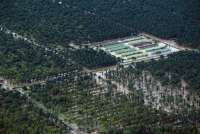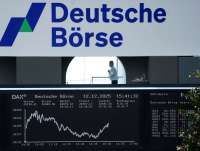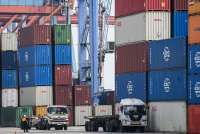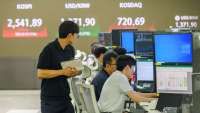USA - BENGALARU. President Donald Trump's import tariffs will do more harm than good to the U.S. economy, say the vast majority of economists polled by Reuters, who also expect the Federal Reserve to raise interest rates this year more than previously thought.
The U.S. central bank will raise interest rates next week, all 104 economists polled by Reuters March 5-13 said, with three more hikes to follow this year, driven by a solid labor market underpinning optimism. That is more than two additional hikes after March expected in a poll taken a few weeks ago.
Nearly 90 percent of 71 respondents also said they were concerned tariffs on steel and aluminum imports would lead to a wider trade war, including almost a third who said they were "very concerned."
"This is not new. We have seen these trade battles back and forth in the past as well. But what is different this time is the persistence and the sense that we are only looking at the tip of the iceberg on protectionism," said Ethan Harris, head of global economics at BofAML.
"What is concerning also is the slippery slope risk here. There is no sign of any let up in this push for protectionism with the frequency of new proposals growing. It will be very surprising if there isn't some measured retaliation over time from major trading partners."
Nearly 80 percent of 60 economists who answered a question on the tariffs said they would do more harm than good and the rest said it would do nothing or very little. Not one respondent said they would benefit the world's largest economy.
"The tariffs are likely to be met with retaliation from U.S. business partners and completely 'miss the point' as China is mostly kept out of range. They have the potential to become highly inflammatory and to undermine the global economic expansion," noted Stefan Koopman, market economist at Rabobank.
The Organisation for Economic Cooperation and Development on Tuesday raised its global growth forecasts to the highest since 2011 but warned the world economy was vulnerable to trade tensions after the import tariffs.
While Trump's decision did very little to world stocks - which marked a nine-year bull run on Friday - the U.S. dollar extended its retreat against most major currencies. A separate Reuters poll of foreign exchange strategists showed that will continue this year.
The latest poll showed the U.S. central bank will raise the federal funds rate by 25 basis points at the March 20-21 meeting to 1.50-1.75 percent and repeat that move three more times, by once a quarter, taking the base rate to 2.25-2.50 percent by end-2018.
That is one additional hike in total compared with a poll taken last month and the Fed's own dot plots.
"All in all, the data, as well as the anecdotes, make another rate hike at the next week's FOMC meeting almost certain unless there is some major new negative development unrelated to the economic data between now and then," noted Jim O'Sullivan, chief U.S. economist at High Frequency Economics. "More debatable is the extent to which the dot plot will change."
Those latest expectations come alongside an upgraded view for growth and inflation.
The Fed's preferred gauge of inflation, the core PCE price index, was forecast to reach the central bank's 2 percent target in the third quarter and rise slightly above that next year.
Full-year average core PCE inflation for 2018 was forecast at 1.8 percent and then 2.1 percent next year - the highest consensus since polling began for 2019.
Economic growth was forecast at an annualized rate of 2.5-3.0 percent each quarter this year, compared to 2.5-2.7 percent in February.
Full-year median forecasts were 2.8 percent for 2018 and 2.4 percent next, compared to 2.7 percent and 2.2 percent previously.
While most economists said fiscal stimulus from tax cuts and additional spending would benefit the economy this year they were mostly split if it had brought the next downturn closer.
Thirty-one of 58 economists said they were not concerned but 27 said they were, including four who said they were very concerned, on the timing of the stimulus at this stage of the already-ageing recovery.
The median probability of a recession in the coming year was 13 percent, a slight increase from 10 percent in a November poll.
"The risk in stimulus now is that it pushes you closer to the end of the business cycle a little bit faster. The concern is also that you want to have your powder dry for dealing with the next recession and we know it is just a matter of time before the next," said BofAML's Harris.
"If we go into a recession with a very big budget deficit already, it is much harder to respond with new tax cuts and spending increases. So you are using up your ammunition at a time when you don't need to."
/2018/03/13/1889204140p.jpg)









